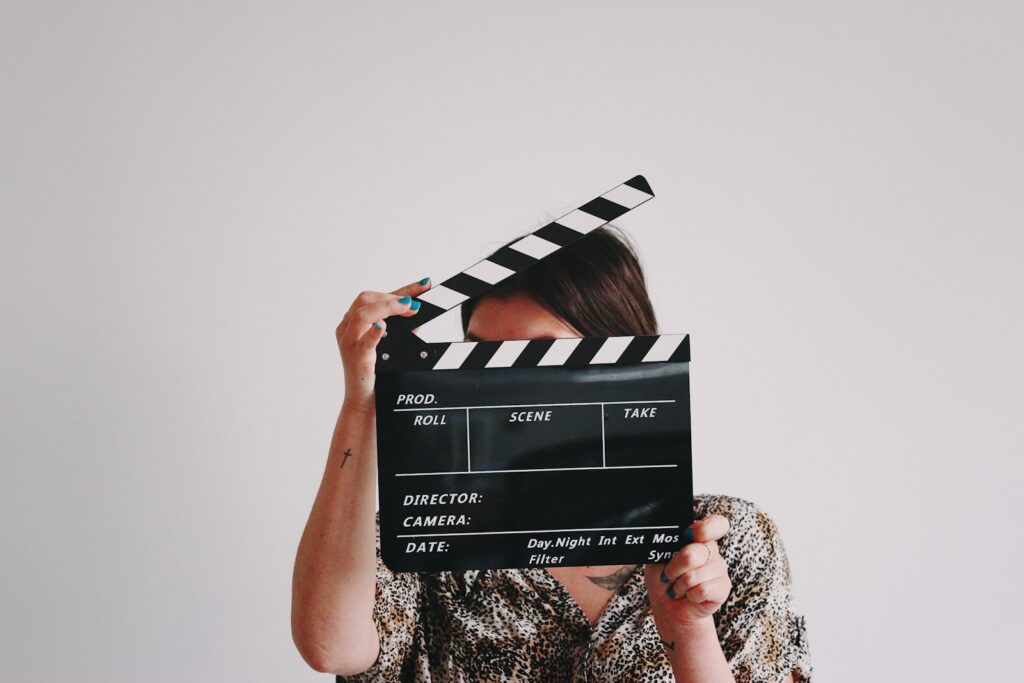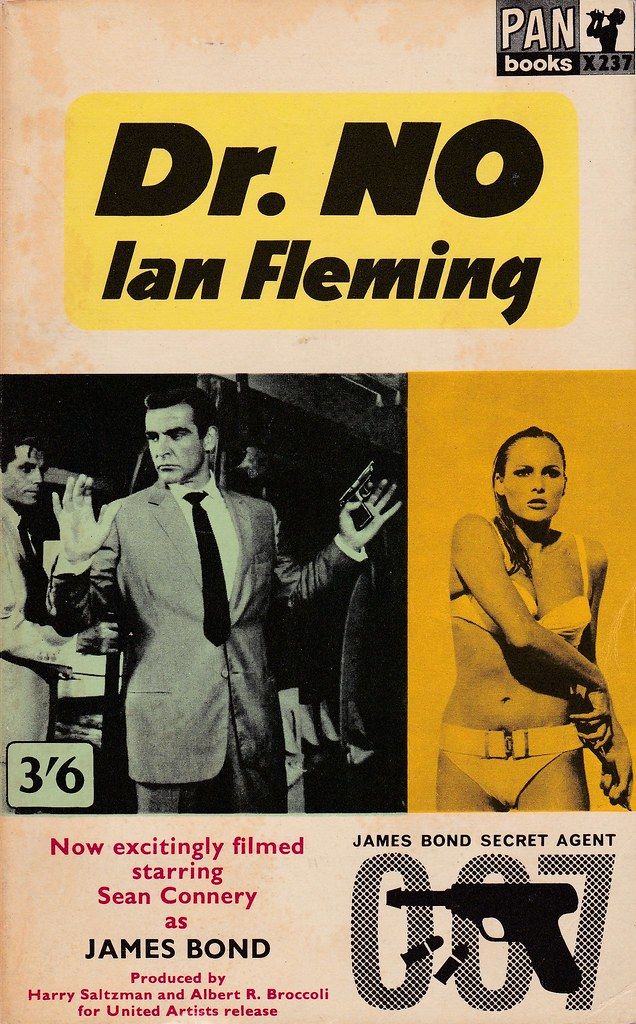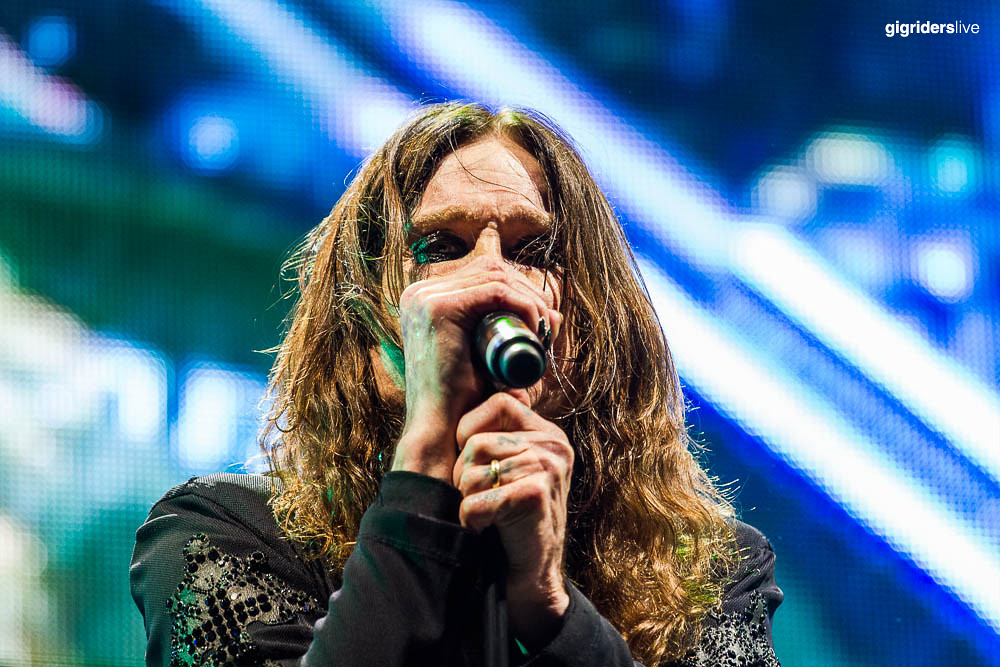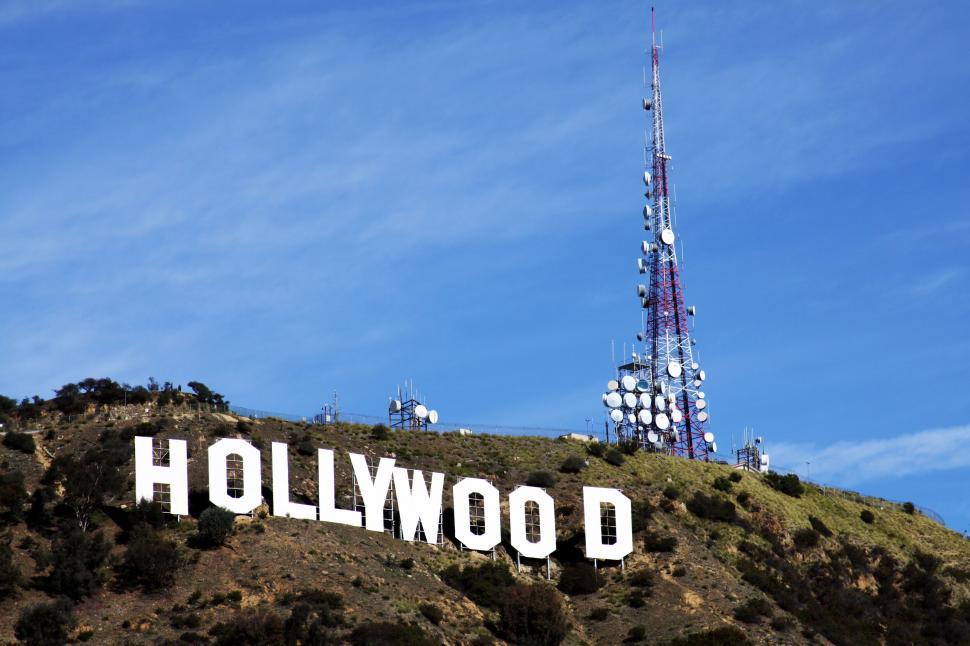
Hollywood, a beacon of dreams and dazzling spectacle, often presents an image of unadulterated glamour and success. From iconic red carpet moments to powerful, commanding performances, actresses are frequently seen as the embodiment of aspiration and talent, celebrated on screens big and small. Yet, beneath the polished facade of fame and adoration lies a complex landscape, one fraught with unique challenges and systemic hurdles that many talented women navigate in their careers.
The glittering allure of Tinseltown can sometimes overshadow the deeper realities of working in a demanding and often unforgiving industry. For every Meryl Streep or Julia Roberts who achieves legendary status, there are countless other women whose experiences paint a picture of resilience in the face of immense pressure and unacknowledged struggles. It’s a world where the spotlight can be both a blessing and a burden, where personal lives are public domain, and professional paths are rarely straightforward.
This article delves into some of the unspoken truths and inherent complexities faced by actresses throughout their careers, drawing insights from various categories that illuminate the often-unfair dynamics at play within Hollywood’s intricate machinery. We’re exploring the nuances of what it means to be a woman in an industry constantly evolving, yet often clinging to outdated norms. Let’s uncover the stories behind the headlines, the struggles that shape careers, and the calls for a more equitable future.

1. **Actresses Who Committed Suicide**: The sheer existence of a category for “Actresses Who Committed Suicide” is a somber reminder of the profound psychological toll that a career in the entertainment industry can exact. While the personal circumstances behind such tragic losses are complex and deeply private, the intense pressures of Hollywood undoubtedly play a significant, often crushing, role. The constant public scrutiny, the relentless pursuit of perfection, and the precarious nature of fame can create an unbearable burden.
Actresses frequently face an unparalleled level of media attention, where their appearance, relationships, and even their most intimate moments become subjects of public discourse and judgment. This relentless gaze, coupled with the instability of work and the constant need to prove oneself, can contribute to immense stress and mental health challenges. It’s a career where vulnerability is often exploited, and support systems can feel inadequate against the tidal wave of expectation.
The industry, for all its creative brilliance, has historically struggled with fostering an environment truly supportive of mental well-being. The culture of silence around personal struggles, the pressure to always appear strong and “on,” and the competitive nature of the business can make it incredibly difficult for individuals to seek help. This category stands as a powerful, tragic testament to a system that, at times, fails its most vulnerable talents.
Moving forward, it’s imperative that Hollywood cultivates a culture of empathy and proactive support for mental health, moving beyond superficial wellness initiatives to genuine, systemic change. It means dismantling the stigma around seeking help and creating safe spaces where actresses feel empowered to prioritize their mental health without fear of professional repercussions. Only then can we hope to mitigate the devastating impact of these silent struggles.
Read more about: Yikes! 14 Hollywood Stars Who Acted Like Total Jerks and Seriously Felt the Burn
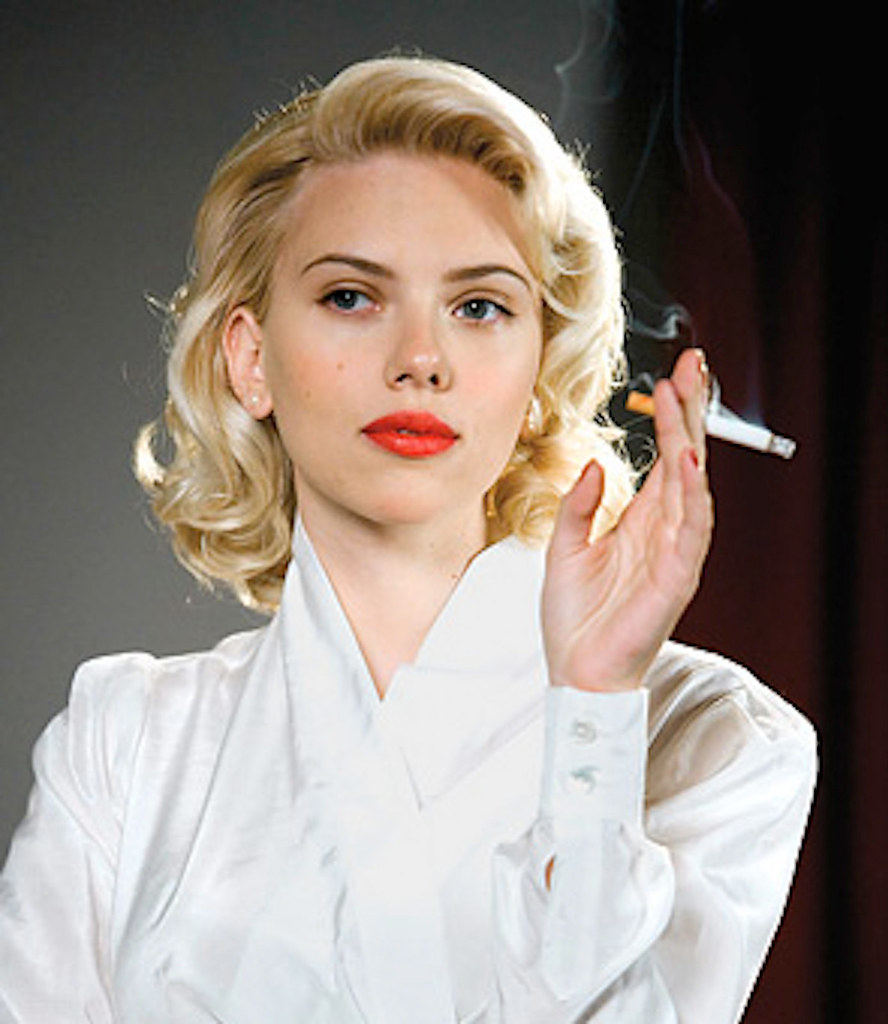
2. **Actresses Who Deserve Oscars**: The Academy Awards represent the pinnacle of cinematic achievement, and being nominated, let alone winning, is a dream for many in the industry. However, the list of “Actresses Who Deserve Oscars” speaks volumes about the inherent biases and often perplexing omissions that characterize the awards landscape. While critical acclaim and public adoration may be widespread for an actress’s work, actual Academy recognition can remain elusive, highlighting a disconnect that often feels profoundly unfair.
This phenomenon isn’t merely about personal preference or artistic taste; it frequently points to deeper, structural issues within the voting bodies and the types of performances or roles that historically receive accolades. For many immensely talented women, a consistent track record of groundbreaking work might not translate into Oscar gold, leading to legitimate questions about what truly defines “award-worthy” in a system that has long favored certain narratives, demographics, and acting styles.
Consider the breadth of talent showcased in lists such as “The Best Actresses Working Today” or “The Greatest Actresses in Film History,” featuring names like Glenn Close or Amy Adams, who despite numerous nominations and universally praised performances, have yet to win a competitive Oscar. Their enduring excellence stands as a powerful counter-narrative to the idea that sheer talent alone guarantees the highest industry honors. It suggests that the path to recognition is often paved with more than just exceptional acting.
The ongoing conversations around diversity and inclusion in Hollywood, often championed by platforms like Refinery29, underscore the need for a more equitable and representative awards process. It’s about recognizing that diverse experiences and perspectives enrich cinema, and that a truly meritocratic system would ensure that deserving performances from all backgrounds and genres are celebrated. The omission of certain actresses from the Oscar winners’ circle serves as a continuous reminder that the fight for true recognition is far from over.
Read more about: Beyond the Bell-Bottoms: 12 Iconic ’70s Actresses Who Totally Changed Hollywood Forever

3. **Lovely Actresses Who Went ‘Ugly’ for Movie Roles**: The category of “Lovely Actresses Who Went ‘Ugly’ for Movie Roles” shines a spotlight on a peculiar and often paradoxical aspect of Hollywood’s treatment of female talent. It suggests a prevailing notion that for an actress, particularly one celebrated for her beauty, to be taken “seriously” and achieve critical acclaim, she must often shed her glamorous image and undergo a drastic physical transformation. This trope, while sometimes leading to powerful performances, also reveals an underlying bias.
For years, women like Charlize Theron in *Monster* or Nicole Kidman in *The Hours* have been praised for their willingness to “de-glamorize” themselves, and these roles frequently garnered them awards. Yet, this praise implicitly underscores a problematic double standard: that a woman’s inherent “loveliness” can be a barrier to being perceived as a profound dramatic actress. It suggests a narrow view where beauty is equated with superficiality, and serious acting must be visually arduous.
This expectation places an unfair burden on actresses, compelling them to choose between maintaining a commercially viable “beautiful” image and pursuing the kind of transformative roles that lead to critical recognition. It can limit the range of roles offered to conventionally attractive women, often typecasting them as love interests or decorative figures, rather than complex, multifaceted characters. The struggle to break free from such superficial labeling is a common thread in many actresses’ careers.
Ultimately, the celebration of actresses who “went ugly” for roles should pivot from focusing on the physical transformation itself to acknowledging the exceptional talent required to inhabit any character authentically, regardless of appearance. It’s a call to broaden the definition of serious acting and challenge the industry’s implicit biases about beauty and dramatic depth. True artistic merit should be recognized irrespective of whether an actress is portrayed as conventionally “lovely” or not.

4. **Actresses Who Filmed While Pregnant**: The sheer dedication and professionalism demonstrated by “Actresses Who Filmed While Pregnant” highlight a specific challenge that disproportionately affects women in Hollywood. While male actors rarely face career interruptions due to family planning, actresses often navigate the complex terrain of pregnancy alongside demanding production schedules, physical requirements, and the constant pressure to maintain their on-screen persona. This dual responsibility can lead to significant physical and emotional strain.
For many actresses, concealing a pregnancy or adapting to its physical changes on set becomes an elaborate exercise in creative problem-solving, involving costume adjustments, clever camera angles, and strategic staging. The existence of this specific list implies that it’s a noteworthy, rather than common and easily accommodated, occurrence, underscoring the lack of standardized policies or widespread industry support for pregnant performers. The narrative often becomes one of overcoming a “challenge” rather than being supported through a natural life event.
The demands of filming, from long hours to physically taxing scenes, are already immense. Adding pregnancy to this equation, without adequate protections or flexible arrangements, can be incredibly taxing. This category implicitly raises questions about maternity leave, childcare provisions, and general workplace accommodations within Hollywood, areas where the industry has historically lagged behind others.
It’s crucial for Hollywood studios and production companies to evolve their practices to better support actresses during pregnancy and early motherhood. This includes implementing clear maternity policies, offering on-set childcare, and fostering a culture where women feel empowered to prioritize their health and family without fearing professional setbacks. Recognizing the immense value of these working mothers means creating an environment where their professional journey isn’t unfairly complicated by personal milestones.
Read more about: Barbara Eden’s Candid Confessions: Unveiling the Truth About Her Relationship With Elizabeth Montgomery

5. **Female Teen Stars of the ’80s: Then and Now**: The journey of “Female Teen Stars of the ’80s” and their subsequent “Then and Now” trajectories offers a poignant look at the precarious nature of early fame, particularly for young women. Hollywood has a long history of elevating child and teen actors to meteoric heights, only to present them with immense challenges as they attempt to transition into mature, adult roles. This period of transition is often fraught with unfair expectations, typecasting, and a profound struggle for identity both on and off screen.
For these young women, the industry often creates an image that becomes difficult to shed. Audiences and casting directors alike can struggle to see them beyond their youthful, often innocent, personas. This can lead to a frustrating lack of diverse opportunities, forcing them into a limited range of roles or leaving them sidelined as new waves of young talent emerge. The glamour and fleeting adoration of teen stardom can quickly give way to career stagnation and personal struggles if the industry fails to provide pathways for growth.
Moreover, the intense public scrutiny experienced by teen stars can be particularly damaging during formative years. Every mistake, every personal choice, is magnified under the relentless glare of the media, making it incredibly difficult to navigate adolescence privately and healthily. The “Then and Now” narratives often highlight not just physical changes, but also the varied and sometimes challenging paths these actresses have taken, reflecting the difficulties of maturing in a highly judgmental environment.
The stories of these actresses serve as a crucial reminder of the industry’s responsibility to nurture young talent with long-term care, rather than simply exploiting their youthful appeal. It calls for better mentorship, psychological support, and a more forgiving approach to career evolution. Allowing these women the space to grow, experiment, and redefine themselves, without the burden of their past persona, is essential for a truly fair and sustainable career.
Read more about: Blast from the Past: 14 Iconic ’80s Stars You Totally Forgot About – And Where They Are Now!
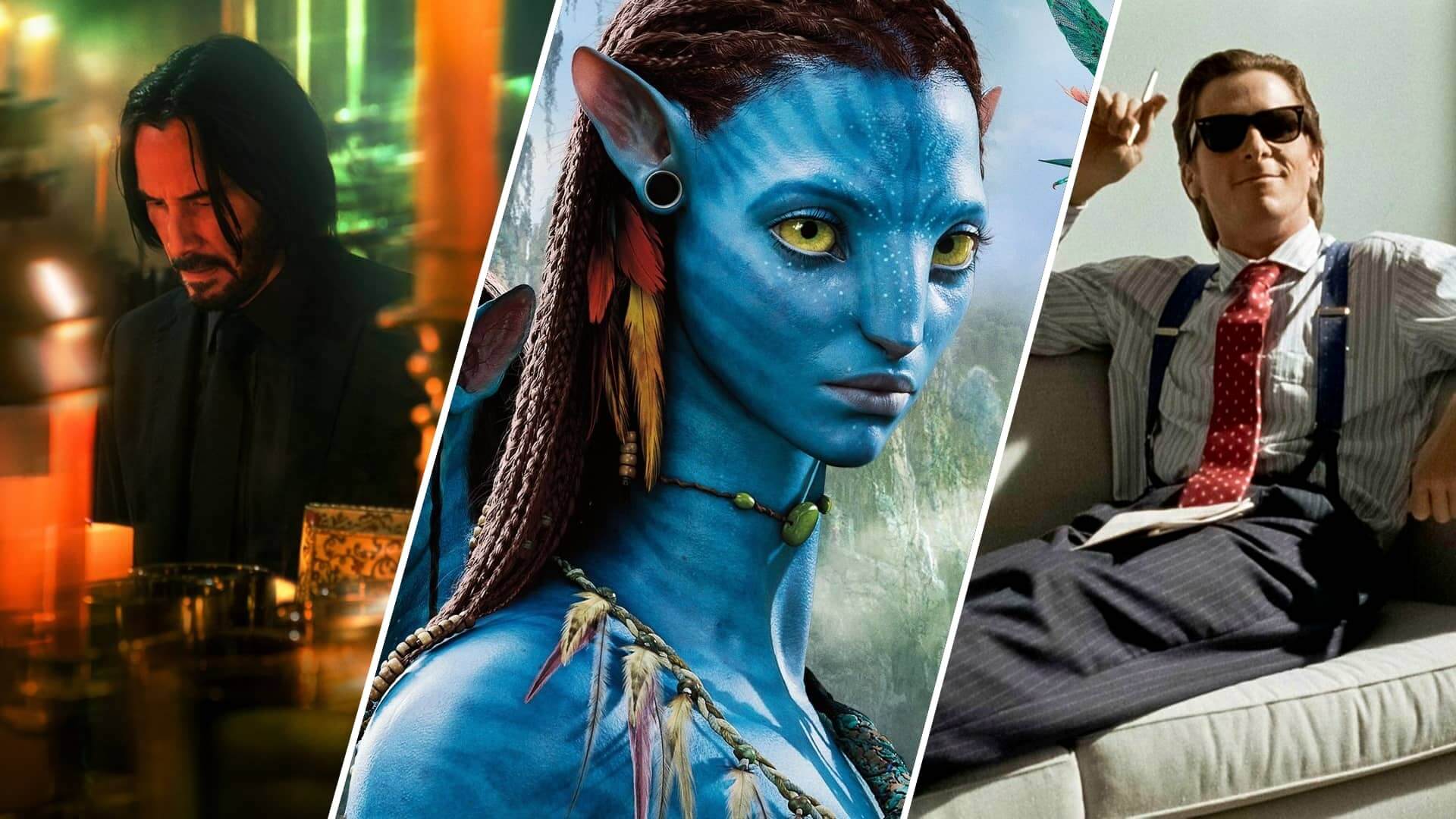
6. **Character Actors Whose Names You Should Know**: The category of “Character Actors Whose Names You Should Know” is an ode to the unsung heroes of film and television, but for women, it often underscores a subtle form of unfairness: exceptional talent consistently overshadowed by star power. These actresses consistently deliver memorable, transformative performances, yet they frequently remain just outside the realm of household recognition. Their faces are instantly familiar, their work indispensable, but their names often elude the broader public.
For many female character actors, the path involves years of dedicated work, embodying a vast array of roles that support the leading narratives. They are the backbone of countless stories, bringing depth, humor, and gravitas to every project. Yet, the industry’s focus on glamorous leads and box-office draws often means that these indispensable talents receive less attention, fewer accolades, and ultimately, less leverage in their careers compared to their “star” counterparts.
The “unfairness” here lies not in their choice of profession, but in the disproportionate reward structure. While leading actresses like Angelina Jolie or Jennifer Aniston command headlines and significant salaries, female character actors, despite their consistent brilliance, often work without the same level of financial security or public adoration. They embody the adage that the hardest workers aren’t always the most recognized.
Recognizing this category is a call to shift perspective, to genuinely appreciate the artistry and dedication that character actresses bring to the screen. It advocates for greater visibility, more substantial roles, and a reevaluation of what constitutes success in Hollywood beyond traditional stardom. Their consistent, compelling work is a testament to talent, and it’s high time their names became as familiar as their unforgettable performances.
Read more about: From Campy Claptrap to Cinematic Crimes: The 10 Sci-Fi Movies So Bad, They’re Almost Unwatchable

7. **Who Is the Next Meryl Streep?**Hollywood has a relentless obsession with finding the ‘next big thing,’ particularly when it comes to actresses. The question, ‘Who Is the Next Meryl Streep?’ while seemingly a compliment, also embodies an unfair pressure on emerging female talent. It implies a limited number of top-tier spots, a need for a successor rather than a celebration of unique, individual artistry, and sets an almost impossible standard for any actress to meet, let alone surpass.
This constant search for a ‘replacement’ rather than allowing actresses to forge their own distinct paths can stifle creativity and pigeonhole performers before they’ve even had a chance to truly evolve. It forces comparisons that distract from an actress’s inherent abilities and vision, placing the burden of embodying an industry’s idealized female archetype onto an individual. Rather than asking who can fill the shoes of a legend, perhaps we should be asking how we can create an industry that celebrates diverse, original talent on its own merits.
The emphasis on succession also highlights a pervasive issue of ageism within Hollywood, particularly for women. The quest for a ‘younger Meryl’ often means established actresses over a certain age are deemed less relevant, even when they are at the peak of their craft. While lists like ‘The Best Living Actresses Over 80’ celebrate enduring talent, the constant focus on identifying the ‘next’ generation can inadvertently diminish the continuous contributions of older women in the industry, suggesting their time is limited or their value is tied to their youth.
For many talented women, the path to critical acclaim is arduous enough without the added burden of being measured against an icon. The industry should instead focus on cultivating environments where actresses feel empowered to explore a full spectrum of roles and genres, allowing them to define their own legacies. This means moving beyond the narrow confines of comparison and embracing a wider definition of what constitutes a successful and impactful career, recognizing the wealth of talent present in ‘The Best Actresses Working Today’ without demanding they conform to a predetermined mold.
Ultimately, the true mark of a thriving artistic community lies in its ability to nurture fresh voices and distinct styles, not in cloning past successes. Every actress, from those just starting out to those already gracing ‘The Greatest Actresses in Film History’ lists, deserves the chance to be celebrated for who they are, without the shadow of another’s achievements casting an unfair, ever-present expectation over their career.
Read more about: Still Turning Heads: 14 Iconic Older Female Celebrities Who Redefine Ageless Glamour and Style in Hollywood
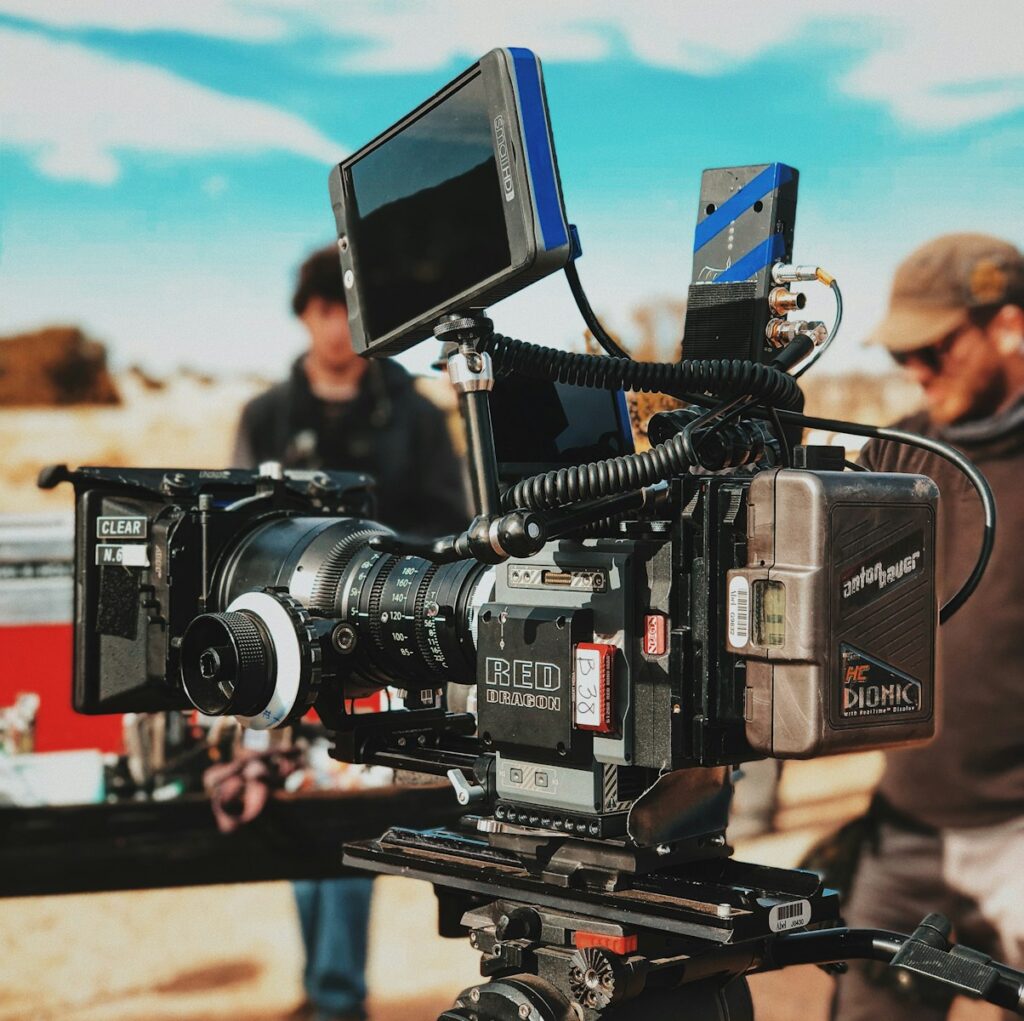
8. **Scene-Stealing Comedic Actresses**While Hollywood often venerates dramatic performances with awards and critical acclaim, the comedic genius of actresses is frequently, and unfairly, overlooked. Lists celebrating ‘Scene-Stealing Comedic Actresses’ are a crucial testament to the immense talent these women possess, highlighting how they consistently elevate projects, often with less recognition than their dramatic counterparts. It’s a subtle form of typecasting where humor, despite its profound difficulty and impact, is somehow deemed less ‘serious’ than tragedy, leading to a disparity in opportunities and accolades.
To be a truly ‘scene-stealing’ comedic actress requires impeccable timing, sharp wit, and a deep understanding of human absurdity – a skillset as complex and demanding as any dramatic role. Yet, many of these brilliant performers find themselves pigeonholed, struggling to break out of comedic roles into more varied dramatic territory. This creates an unfair cycle where their proven ability to make audiences laugh becomes a barrier to showcasing their full range, limiting their career trajectory and public perception.
The industry’s tendency to undervalue comedy as an art form translates into tangible disadvantages for these actresses. While they might be beloved by audiences, critical circles and major awards often prioritize dramatic gravitas, leaving comedic actresses perpetually fighting for the same level of respect. This isn’t to say comedic roles aren’t fulfilling, but the systemic unfairness lies in the restricted pathways for career growth and the presumption that their talent is limited to one genre.
Consider the ‘Funniest Female Comedians’ who populate our screens and stages; their contributions are foundational to the entertainment landscape. Yet, how often do we see them transition effortlessly into equally celebrated dramatic leads, or receive the highest honors for their comedic work? The inherent bias suggests that a woman’s ability to be funny is more of a delightful quirk than a profound artistic expression, diminishing the depth and intelligence required to consistently deliver memorable comedic performances.
It’s time for Hollywood to actively challenge this unspoken hierarchy and recognize that comedic acting, especially when it’s ‘scene-stealing,’ is a powerful, transformative force. By valuing humor as a legitimate and complex acting discipline, the industry can create more equitable opportunities for these actresses, allowing them to explore diverse roles and receive the comprehensive recognition they unequivocally deserve, ensuring their brilliance is no longer confined to the shadows of dramatic prestige.
Read more about: From Cameo to Icon: 14 Supporting Roles That Defined Their Films
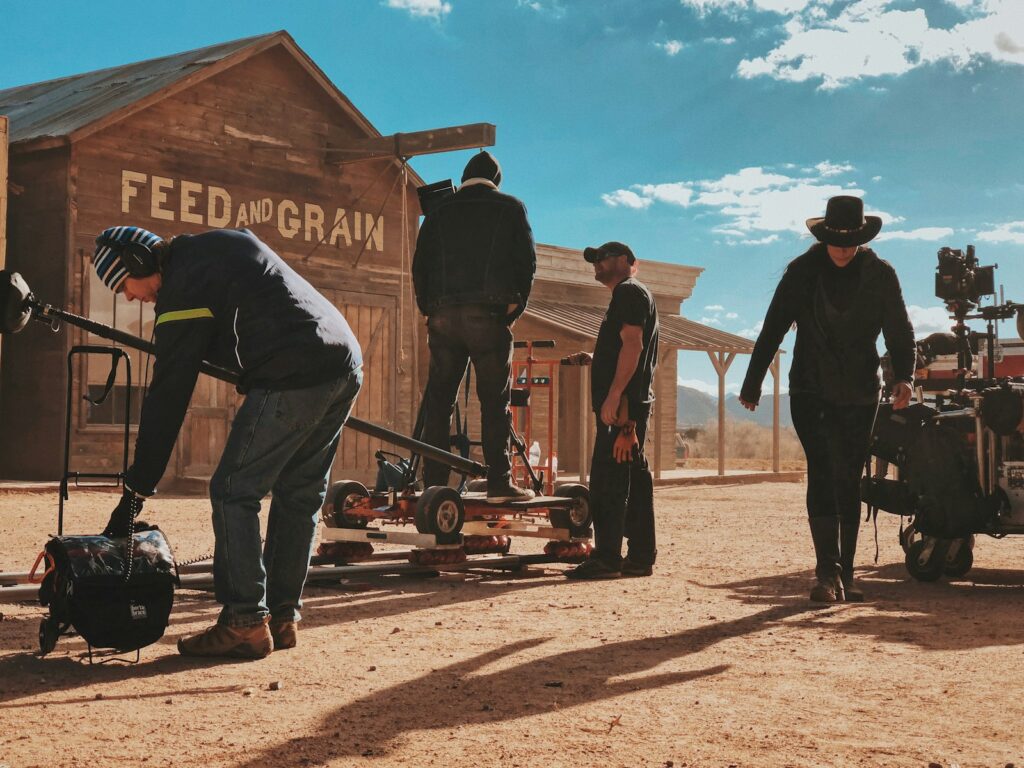
9. **Hollywood’s Best Asian Actresses**The fight for equitable representation and diverse recognition is nowhere more evident than in the experience of Asian actresses in Hollywood. For far too long, these incredibly talented women have faced marginalization, stereotypical roles, and an uphill battle for visibility in an industry that has historically struggled with inclusivity. Highlighting ‘Hollywood’s Best Asian Actresses’ is not just a celebration, but a crucial act of advocacy, shining a light on talent that has often been overlooked or confined to narrow, two-dimensional portrayals.
For generations, Asian actresses navigated an industry that presented a limited and often damaging view of Asian women, perpetuating stereotypes rather than embracing the rich tapestry of their cultures and individual identities. This unfair treatment has denied audiences complex, authentic stories and has imposed immense professional and personal burdens on actresses who were expected to fit into preconceived notions of race and gender.
However, the landscape is slowly but surely shifting, propelled by the persistent voices of activists, filmmakers, and the actresses themselves. There is a growing demand for nuanced characters and stories that accurately reflect the diversity of Asian experiences. This shift is vital for dismantling the historical barriers that have prevented many talented Asian actresses from reaching their full potential and receiving the widespread recognition they are due.
These lists serve as powerful reminders of the wealth of talent that exists and the critical importance of creating an industry that champions genuine diversity. By proactively featuring and celebrating Asian actresses, Hollywood can move beyond tokenism towards systemic change, ensuring that future generations of performers see themselves reflected in empowering and complex roles. It’s about building a future where an actress’s heritage is an asset that enriches storytelling, not a limitation imposed by outdated biases.
Embracing and promoting ‘Hollywood’s Best Asian Actresses’ means acknowledging their resilience, artistry, and the profound cultural relevance they bring to the global stage. It is a call to action for the industry to invest in stories that are truly representative, providing platforms where Asian actresses can thrive in roles that are as diverse and compelling as their real-life contributions to cinema.
Read more about: Vanished Without a Trace: 14 Shocking Celebrity Disappearances That Still Haunt Us
10. **The Best Black Actresses Ever**The journey of Black actresses in Hollywood is a testament to extraordinary talent, resilience, and an unwavering fight against systemic inequality. While ‘The Best Black Actresses Ever’ lists celebrate groundbreaking artists, they also implicitly underscore the profound unfairness that has plagued their careers: a consistent struggle for equitable representation, challenging stereotypical roles, and battling for fair recognition in an industry that has historically privileged white narratives and performers.
For decades, Black actresses have faced a double burden of racial and gender bias, often being relegated to subservient roles, or entirely excluded from mainstream storytelling. Their fight for complex, authentic characters has been a continuous battle, pushing against a system that frequently failed to see their full humanity and artistic depth. This historical marginalization has denied countless Black actresses the opportunities and accolades that their talent unequivocally warranted.
Despite these profound challenges, Black actresses have not only persevered but have consistently delivered some of the most powerful and transformative performances in cinematic history. Their ability to command the screen, often with material that was initially limited, speaks volumes about their incredible skill and dedication. However, this excellence has not always translated into equal pay, consistent opportunities, or the widespread critical adoration often afforded to their white counterparts.
In recent years, the conversation around diversity, equity, and inclusion has gained significant momentum, challenging Hollywood to confront its long-standing biases. Lists celebrating ‘The Best Black Actresses Ever’ are more than just retrospectives; they are a vital part of this ongoing cultural dialogue, demanding that their contributions be central to the narrative of Hollywood’s evolution. They serve as a powerful reminder of what has been lost due to inequality, and what stands to be gained by truly embracing all voices.
The industry’s future must be one where Black actresses are not just included, but are celebrated and supported in a way that truly reflects their immense talent and cultural impact. This requires proactive casting, diverse storytelling teams, and a commitment to dismantling the structures that have perpetuated unfair treatment. Only then can ‘The Best Black Actresses Ever’ truly embody a vision of a Hollywood that is genuinely equitable and representative of all its brilliant stars.
Read more about: Beyond the Bell-Bottoms: 12 Iconic ’70s Actresses Who Totally Changed Hollywood Forever

11. **The Best Hispanic & Latina Actresses Under 25, Ranked**The emergence and celebration of ‘The Best Hispanic & Latina Actresses Under 25, Ranked,’ as highlighted by ‘Luna Blaise Boyd on The Best Hispanic & Latina Actresses Under 25, Ranked,’ is a powerful and necessary step towards a more equitable Hollywood, yet it also casts a sharp light on the unique unfairness these young women navigate. These actresses face the dual challenge of youth and ethnicity, often encountering an industry that is slow to embrace diversity, particularly for multi-dimensional roles that transcend stereotypes.
For young Hispanic and Latina actresses, the path to sustained success is frequently fraught with the pressure to conform to narrow archetypes or, conversely, to be the sole representative of an entire culture. This can lead to tokenism, where their presence is lauded for diversity points rather than for the depth of their individual talent and potential. The challenge is not just to get noticed, but to be seen as a versatile artist capable of playing any role, rather than being confined to culturally specific ones.
Moreover, the pressures of being ‘under 25’ in Hollywood are immense, often involving intense public scrutiny, rapid career demands, and the difficulty of maturing in the spotlight. When combined with the systemic biases faced by women of color, these young actresses shoulder an exceptional burden. They must demonstrate extraordinary resilience and talent to carve out careers that defy limiting expectations and pave the way for future generations.
These lists, and the platforms that champion them, are vital in shifting the narrative. They provide much-needed visibility and advocate for the nurturing of these rising stars, ensuring they receive the support, mentorship, and diverse opportunities necessary for long-term careers. It’s about recognizing that this new crop of talent brings a rich mosaic of experiences, languages, and perspectives that can profoundly enrich the global cinematic landscape.
Ultimately, a truly fair Hollywood will not just acknowledge ‘The Best Hispanic & Latina Actresses Under 25,’ but will actively invest in their growth, challenge outdated notions of casting, and provide the infrastructure for them to flourish as multifaceted artists. Their success is a powerful indicator of progress, but also a continuous call to action for an industry that must fully embrace and empower all its diverse talents, from every background and at every stage of their careers.
As we’ve journeyed through the intricate and often challenging landscape of Hollywood, it becomes strikingly clear that while the industry glitters with dreams, it often struggles with fairness. From the silent battles against mental health stigmas to the pervasive pressures of succession and the enduring fight for true, equitable representation across all ethnicities and comedic genres, actresses continue to navigate a terrain fraught with unique hurdles.
The stories of these women—whether they are challenging archaic award systems, pushing boundaries of physical transformation, or tirelessly working behind the scenes as character actors—are not just tales of individual resilience, but collective calls for systemic transformation. They remind us that Hollywood’s evolution is not merely about box office numbers or critical acclaim, but about creating an environment where every woman feels valued, seen, and empowered to define her own powerful narrative.
The conversation around fairness in Hollywood is an ongoing one, championed by platforms dedicated to social consciousness and empowerment. It’s a dialogue that insists on celebrating the multifaceted genius of all actresses, demanding an industry that reflects the rich diversity of the world we live in. The path forward requires a continuous commitment to dismantling old biases and building a new foundation where talent, in every form, is recognized, respected, and truly thrives without unfair constraint.

